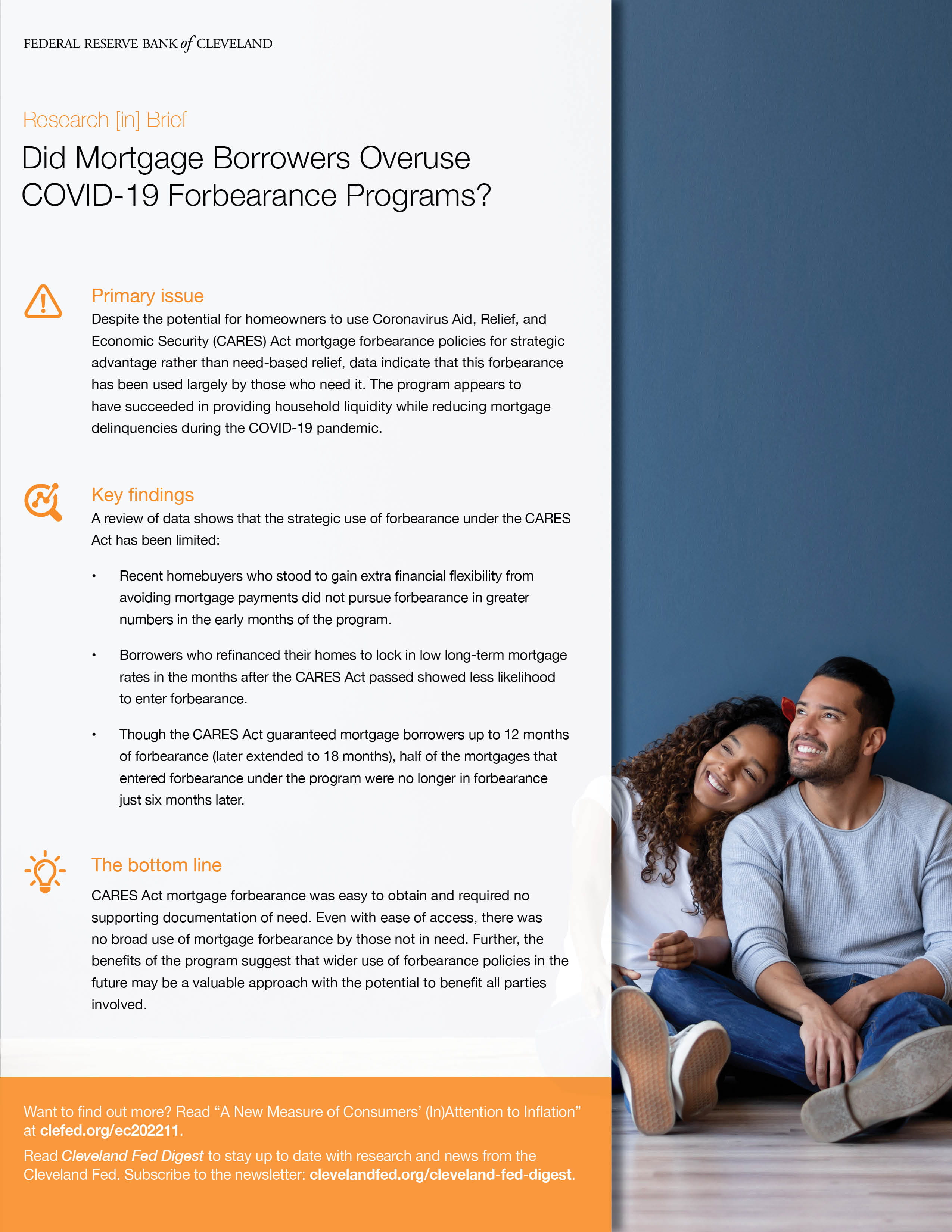- Share
Infographic

Full text
Primary issue
Despite the potential for homeowners to use Coronavirus Aid, Relief, and Economic Security (CARES) Act mortgage forbearance policies for strategic advantage rather than need-based relief, data indicate that this forbearance has been used largely by those who need it. The program appears to have succeeded in providing household liquidity while reducing mortgage delinquencies during the COVID-19 pandemic.
Key findings
A review of data shows that the strategic use of forbearance Under the CARES Act has been limited:
- Recent homebuyers who stood to gain extra financial flexibility from avoiding mortgage payments did not pursue forbearance in greater numbers in the early months of the program.
- Borrowers who refinanced their homes to lock in low long-term mortgage rates in the months after the CARES Act passed showed less likelihood to enter forbearance.
- Though the CARES Act guaranteed mortgage borrowers up to 12 months of forbearance (later extended to 18 months), half of the mortgages that entered forbearance under the program were no longer in forbearance just six months later.
The bottom line
CARES Act mortgage forbearance was easy to obtain and required no supporting documentation of need. Even with ease of access, there was no broad use of mortgage forbearance by those not in need. Further, the benefits of the program suggest that wider use of forbearance policies in the future may be a valuable approach with the potential to benefit all parties involved.
Want to find out more? Read “Mortgage Borrowers’ Use of COVID-19 Forbearance Programs.”
Read Cleveland Fed Digest to stay up to date with research and news from the Cleveland Fed. Subscribe to the newsletter.
Related resources
Mortgage Borrowers’ Use of COVID-19 Forbearance Programs
The guarantee of mortgage forbearance provided in the CARES Act is an unprecedented provision of flexibility for government-insured mortgage borrowers and has been successful thus far at limiting delinquencies during the COVID-19 pandemic. The terms of this forbearance are favorable to borrowers, and there is little required in terms of documentation of hardship, making requesting forbearance an attractive option even if borrowers are not facing hardship and do not need forbearance to remain current on a mortgage. Despite this, evidence indicates that so far CARES Act forbearance has largely been used by borrowers who did actually need it. The success of forbearance in providing households liquidity and in reducing mortgage delinquencies, and its many potential benefits relative to foreclosure in terms of aligning incentives among the borrower, lender, and neighboring homeowners, raises questions for how policymakers should approach mortgage policy during the next economic downturn and about how mortgage contracts are designed.

